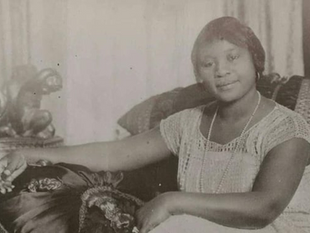

Lost Fortunes: The Wealthy Black Women Who Built Empires Before the Civil Rights Act—And Where Their Wealth Went (Part 9/28, Hattie McDaniel)
Feb 19
3 min read
0
31
0
“Faith is the black person’s federal reserve system.” – Hattie McDaniel
Hattie McDaniel

Hattie McDaniel was a groundbreaking actress, singer, and radio personality who became the first Black person to win an Academy Award. Despite facing racial barriers in Hollywood, she built a successful career that made her one of the highest-paid Black entertainers of her time. However, like many Black pioneers, McDaniel’s wealth did not endure beyond her lifetime. This article explores how she accumulated her fortune, the financial and racial challenges she faced, and what ultimately happened to her wealth.
How Hattie McDaniel Acquired Her Wealth
Born on June 10, 1893, in Wichita, Kansas, Hattie McDaniel was the youngest of 13 children in a formerly enslaved family. She grew up in a household filled with music and performance, which influenced her career aspirations. She began as a singer and songwriter, performing in minstrel shows and vaudeville circuits. In the 1920s, she became one of the first Black women to perform on radio, gaining a national audience. She worked as a maid while pursuing acting, a job that would later define many of her roles in Hollywood.
McDaniel moved to Los Angeles in the early 1930s and found small acting roles. Her big break came when she was cast as Mammy in Gone with the Wind (1939), a role that won her the Academy Award for Best Supporting Actress, making history.
She appeared in over 300 films, often cast in maid or servant roles due to racial stereotyping in Hollywood. At the height of her career, she was earning up to $700 per week, a significant salary at the time (equivalent to over $14,000 per week today). In the 1940s, she starred in the popular radio show Beulah, doubled its audience, and later became one of the first Black women to star in a television sitcom.
McDaniel used her earnings to invest in real estate. In 1942, She purchased a lavish seventeen room mansion in Sugar Hill, Los Angeles, an upscale community referred to as the Black Beverly Hills, a neighborhood with stately Victorian homes. Her wealth allowed her to support charitable causes, including donations to Black schools, churches, and organizations.
What Happened to Hattie McDaniel’s Wealth?
Housing Discrimination: When McDaniel bought her home in Sugar Hill, white neighbors tried to force her out, leading to a landmark legal battle. She and other Black homeowners won the case, but the stress and legal fees impacted her finances.
Hollywood Blacklist: During World War II, McDaniel faced criticism from both Hollywood and civil rights activists for taking stereotypical roles. By the late 1940s, she was blacklisted from major film roles, drastically reducing her income.
Limited Investment Strategies: Unlike white Hollywood stars, McDaniel had fewer opportunities to diversify her wealth through endorsements or business ventures.
Medical Expenses: In 1949, she suffered a heart attack, and in 1952, she was diagnosed with breast cancer. Medical treatments drained much of her remaining wealth. By the time of her death on October 26, 1952, McDaniel was living near poverty, her fortune had dwindled significantly. Her estate was valued at $10,000 (approximately $120,000 today) and represented a fraction of what she once earned.
No Generational Wealth: McDaniel was married four times but had no children. She left her estate to her brother, but without structured wealth planning, much of it was lost over time. She had hoped to donate her Oscar to Howard University, but the award mysteriously disappeared in the 1970s, and its whereabouts remain unknown. The Academy replaced the Oscar in 2023 and returned it to Howard University.
Legacy and Lessons from Hattie McDaniel
Despite financial struggles, McDaniel’s success paved the way for Black actors in Hollywood. She broke barriers and proved that Black entertainers could achieve financial success. Her story highlights the need for financial literacy, estate planning, and investment diversification to sustain wealth across generations.
McDaniel’s struggles also reflect the racial and economic barriers that prevented many Black stars from maintaining their wealth, a lesson still relevant today.
A Trailblazer’s Wealth, but a Lost Fortune
Hattie McDaniel was a Hollywood legend, but systemic racism, financial challenges, and health expenses led to the loss of her wealth. While her cultural impact remains undeniable, her financial struggles serve as a reminder of the importance of wealth preservation for future Black entertainers and entrepreneurs.
McDaniel’s great-grandnephew Kevin John Goff, continues to preserve her legacy at www.HattieMcDaniel.com.
This is a Financial Education series of The new LaVilla. Read more at www.thenewlavilla.com and on LinkedIn and Facebook @thenewlavilla



